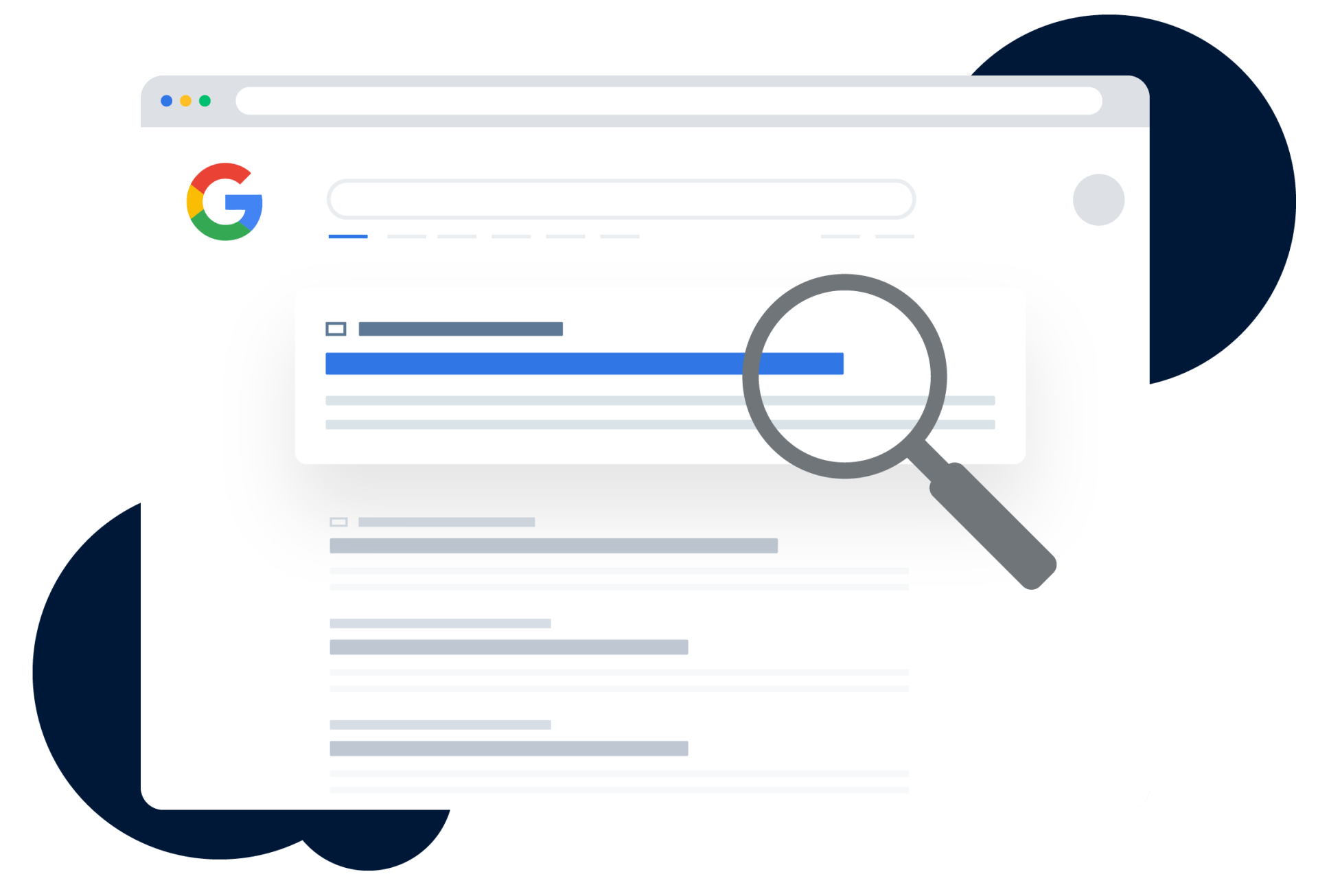Climbing the Google Ladder: How to Improve Your Website Ranking
Want to improve your website ranking on google? Here's a quick answer:
- Publish relevant, authoritative content regularly
- Make sure your site is mobile-friendly and loads quickly
- Get high-quality backlinks from credible sites
- Use keywords effectively and naturally throughout your site
- Regularly update content and site information
Understanding Google Ranking
When it comes to website ranking on google, SEO (Search Engine Optimization) plays a crucial role. Google uses a complex set of algorithms, with over 200 factors, to decide where your website appears in search results. This might sound overwhelming, but mastering the basics of SEO can make a big difference in boosting your site's visibility.
Google measures several key factors like the relevance and authority of your content, page speed, and mobile-friendliness. Backlinks from other reputable websites also help signal your site's credibility. SEO isn't just about pleasing search engines; it's about ensuring users have a great experience on your site.
I'm Kerry Anderson, co-founder of RankingCo with over 15 years in the digital marketing arena. My expertise in website ranking on google has empowered countless businesses to soar online through strategic SEO approaches. Let's explore these strategies further to gear up your site for success.
Publish Relevant, Authoritative Content
Creating content that resonates with both users and search engines is key. Google prioritizes content that is relevant, authoritative, and trustworthy. Here's how you can ensure your content hits the mark:
Content Quality
Quality content is the backbone of SEO success. It should be informative, engaging, and valuable to your audience. Think of your content as a conversation with your readers. It should address their needs and answer their questions.
- Focus on User Intent: Understand what your audience is searching for and tailor your content to meet those needs. This ensures that your content is both relevant and useful.
- Keep it Fresh: Regularly update your content to keep it current and relevant. This not only helps with SEO but also keeps your audience engaged.
- Be Clear and Concise: Use simple language and break down complex topics into easy-to-understand sections. This improves readability and user experience.
Expertise
Showcasing your expertise is crucial for building trust with your audience and search engines. Share insights, tips, and knowledge that highlight your authority in your field.
- Use Data and Research: Back your claims with data and research. This not only adds credibility but also strengthens your content's authority.
- Include Expert Quotes: Featuring quotes from industry experts can improve your content's trustworthiness and provide additional value to your readers.
Trustworthiness
Trust is a crucial factor in website ranking on Google. Content that is perceived as trustworthy is more likely to rank higher.
- Cite Sources: Always reference your sources when presenting facts or data. This transparency builds trust with your readers.
- Avoid Clickbait: Ensure your titles and meta descriptions reflect the actual content. Misleading headlines can harm your credibility and increase bounce rates.
- Encourage User Reviews: User-generated content, like reviews and testimonials, can improve your site's trustworthiness and provide social proof.
By focusing on these elements, you'll create content that not only resonates with your audience but also improves your website's ranking on Google. Next, we'll explore how to make your site link-worthy, a crucial step in building your online authority.
Have a Link-Worthy Site
Creating a link-worthy site is essential for climbing the Google ladder. Backlinks from high-authority sites serve as endorsements, boosting your site's credibility and improving your website ranking on Google. Here’s how you can make your site attractive for linking.
Backlinks
Backlinks are links from one website to another. They're like votes of confidence, signalling to Google that your content is valuable and trustworthy. The more quality backlinks you have, the better your chances of ranking higher.
- Quality Over Quantity: Focus on acquiring backlinks from reputable sites rather than just amassing a large number. A single link from a high-authority site can be more beneficial than dozens from low-quality sites.
- Diverse Sources: Aim to get backlinks from a variety of domains. This diversity shows Google that your site is trusted across different areas of the web.
High-Authority Sites
High-authority sites are those that are well-regarded, have high traffic, and are trusted by both users and search engines. Getting backlinks from these sites can significantly improve your website's authority.
- Guest Blogging: Write guest posts for reputable websites in your industry. This not only earns you backlinks but also exposes your brand to a new audience.
- Collaborate with Influencers: Partnering with influencers can help you gain backlinks from their blogs or social media platforms, boosting your site's authority.
Link-Building Checklist
To ensure your site is link-worthy, follow this checklist:
- Create Exceptional Content: High-quality content naturally attracts backlinks. Focus on producing unique, informative, and engaging material.
- Reach Out: Don't hesitate to ask for backlinks. Contact site owners or bloggers who might find your content valuable to their audience.
- Use Internal Links: Strengthen your site's structure by linking to other pages within your site. This not only helps with SEO but also keeps users engaged.
- Monitor Your Backlinks: Use tools like Google Search Console to track your backlinks. Identify which are most effective and where you might need improvement.
- Engage in Community Forums: Participate in relevant online forums or communities. Share your expertise and link back to your site when appropriate.
- Build Relationships: Networking with other site owners can lead to natural backlink opportunities. Attend industry events or online webinars to connect with potential partners.
- Submit to Directories: While not as powerful as they once were, submitting your site to reputable online directories can still provide valuable backlinks.
- Fix Broken Links: Identify broken links on other sites and offer your content as a replacement. This is a win-win situation for both parties.
- Leverage Social Media: Share your content on social media platforms to increase visibility and potential for backlinks.
- Stay Updated: SEO and link-building strategies evolve. Keep up with the latest trends to ensure your strategy remains effective.
By following these strategies, your site will become more link-worthy, enhancing its authority and boosting its website ranking on Google. Next, we’ll dive into mining your search queries to further optimize your SEO efforts.
Mine Your Search Queries
Understanding and leveraging your search queries is a cornerstone of effective SEO. It starts with keyword research, which is all about identifying the words and phrases that potential visitors use to find content like yours. This step is crucial for improving your website ranking on Google.
Keyword Research
Keyword research involves finding the right terms that your audience is searching for. These terms should align with your content and business goals. Here's how you can do it:
- Identify Core Keywords: Begin with broad terms related to your business. Then, refine these into more specific phrases that reflect what your audience is looking for.
- Use Keyword Tools: Tools like Google Keyword Planner can help you find relevant keywords by showing search volume and competition levels.
- Focus on Long-Tail Keywords: These are longer, more specific phrases. They might have lower search volume, but they often convert better because they capture user intent more precisely.
Search Volume
Search volume indicates how often a keyword is searched for within a given timeframe. It's a vital metric that helps you prioritize which keywords to target.
- High vs. Low Volume: High search volume keywords can bring more traffic, but they often come with high competition. Conversely, low-volume keywords might be easier to rank for but bring less traffic.
- Balancing Act: Aim for a mix of high and low search volume keywords. This strategy ensures you have a balance between easy wins and long-term goals.
User Intent
Understanding user intent is about figuring out what people really want when they type a query into Google. It’s not just about the words they use, but the reason behind their search.
- Types of Intent: Generally, user intent falls into three categories: informational (looking for information), navigational (looking for a specific website), and transactional (looking to make a purchase).
- Align Content with Intent: Make sure your content matches the intent behind the keywords you’re targeting. For example, if a user is searching for "how to tie a tie," they want a step-by-step guide, not a page selling ties.
- Refine with Analytics: Use tools like Google Analytics to see which keywords are driving traffic to your site and whether they match your content’s intent.
By mining your search queries effectively, you can create content that not only attracts visitors but also meets their needs. This alignment is key to improving your website ranking on Google. Next, we’ll explore how conducting SERP analysis can provide deeper insights into your SEO strategy.
Conduct SERP Analysis
When it comes to improving your website ranking on Google, understanding the Search Engine Results Page (SERP) is essential. The SERP is the page you see after entering a query into a search engine. It displays the results that the search engine deems most relevant to your query.
Importance of SERP Analysis
Conducting a SERP analysis helps you understand how your website stacks up against the competition. It allows you to see what types of content are ranking for your target keywords and why. This understanding is crucial for crafting a strategy that can improve your rankings.
Here's why SERP analysis is important:
- Identify Ranking Opportunities: By analysing the SERP, you can identify gaps where your content could outperform existing results. Look for opportunities where you can provide more value or a unique perspective.
- Understand User Intent: The SERP can give you insights into what users expect to find when they search for a keyword. This helps you align your content with user intent, which is a key factor in ranking well.
- Spot Trends and Changes: Search engines frequently update their algorithms. By regularly analysing the SERP, you can spot changes and adjust your SEO strategy accordingly.
Competitor Insights
Analysing the SERP also provides valuable insights into your competitors' strategies. Here's how you can leverage this information:
- Competitor Content Analysis: Look at the top-ranking pages for your target keywords. Analyse their content to see what makes them successful. Is it their use of keywords, the depth of their content, or perhaps their multimedia elements?
- Backlink Opportunities: Check where your competitors are getting their backlinks. These sites might be potential link-building opportunities for you as well.
- SERP Features: Note any SERP features like snippets, FAQs, or local packs that your competitors are appearing in. Aim to optimize your content to capture these features.
y understanding the SERP and your competition, you can refine your SEO strategy and improve your website ranking on Google. Next, we'll dig into the importance of adding schema markup to improve your site's visibility.
Add Schema Markup
Structured data is like giving search engines a roadmap to your website's content. It helps them understand the context and details of your pages better. This is where schema markup comes in.
Schema markup is a type of microdata that you add to your website's HTML. It helps search engines like Google understand the content on your site more effectively. This understanding can lead to improved search results, known as rich snippets.
What are Rich Snippets?
Rich snippets are the extra bits of information that appear in search results. They can include things like star ratings, product prices, or event details. These snippets make your listing stand out and can increase the click-through rate to your site.
For example, if you have a recipe website, using schema markup can display cooking times, calorie counts, and reviews directly in the search results. This added detail can attract more visitors to your site.
Improved Visibility with Schema Markup
Adding schema markup can significantly improve your website's visibility in search results. Here's how it works:
- Improved Search Listings: With schema markup, your search listings can become more informative. This can lead to higher click-through rates as users are more likely to click on listings that provide quick, relevant information.
- Increased Credibility: Rich snippets can also increase your site's credibility. When users see structured data like reviews or ratings, they tend to trust the information more, which can lead to increased traffic and engagement.
- Voice Search Optimization: As voice search becomes more popular, structured data can help your site be more accessible to voice search queries. This is because voice assistants often rely on structured data to provide answers to users' questions.
How to Implement Schema Markup
Implementing schema markup may sound technical, but it doesn't have to be daunting. Here’s a simple checklist to get you started:
- Choose the Right Schema Type: There are many types of schema markup available. Choose the one that best fits your content, such as articles, products, or events.
- Use Google's Structured Data Markup Helper: This tool can help you generate the necessary code for your site. Simply highlight the elements you want to mark up, and it will create the code for you.
- Add the Code to Your Site: Once you have the code, add it to your website's HTML. Make sure it's placed correctly within the relevant pages.
- Test with Google’s Structured Data Testing Tool: Before going live, test your schema markup to ensure there are no errors. This tool will show you how your markup appears to search engines.
- Monitor Your Rich Snippets: After implementation, keep an eye on your search results to see if rich snippets are appearing as expected.
By adding schema markup, you can improve your site's search appearance and potentially boost your website ranking on Google. It’s a powerful tool for improving visibility and attracting more visitors. Next, we'll explore how to improve on-site SEO to further improve your site's performance.
Improve On-Site SEO
Enhancing your website's on-site SEO is crucial for boosting your website ranking on Google. Let's explore three key areas: page speed, mobile-friendliness, and HTTPS.
Page Speed
Page speed is vital. A slow website can drive visitors away faster than you can say "SEO." Google considers page speed as a ranking factor because it affects user experience.
Here’s how to speed things up:
- Optimise Images: Compress images without losing quality. Tools like TinyPNG can help.
- Minimise CSS and JavaScript: Reduce the size of your CSS and JavaScript files. Tools like Minify can do this.
- Enable Browser Caching: This allows returning visitors to load your site faster by storing some of your site’s data on their browser.
According to RankingCo, improving page speed can lower your bounce rate and improve user satisfaction.
Mobile-Friendliness
With 61% of mobile users likely to contact a local business if the site is mobile-friendly, ensuring your site works well on mobile devices is a no-brainer. Google uses mobile-first indexing, meaning it primarily uses the mobile version of your site for ranking.
Here’s how to ensure mobile-friendliness:
- Responsive Design: Use a design that adapts to different screen sizes.
- Touch-Friendly Elements: Buttons and links should be easy to tap on small screens.
- Fast Mobile Load Times: Mobile users expect quick loading, so ensure your mobile site is as fast as your desktop version.
HTTPS
Security is not just for banks. Google gives a slight ranking boost to sites using HTTPS. It’s a sign that your site is secure, which builds trust with your visitors.
Switching to HTTPS involves:
- Getting an SSL Certificate: You can get this from your web hosting provider.
- Updating Internal Links: Ensure all your links point to the HTTPS version of your site.
- Setting Up 301 Redirects: Redirect HTTP pages to their HTTPS counterparts to avoid losing traffic.
Making these changes can improve your site's security and could positively impact your website ranking on Google.
By focusing on page speed, mobile-friendliness, and HTTPS, you’ll create a better experience for your users and make your site more appealing to search engines. Next, let’s look at how to monitor technical SEO to keep your site running smoothly.
Monitor Technical SEO
Keeping a close eye on your website's technical SEO is essential for maintaining a strong website ranking on Google. This involves regular site audits, error tracking, and using the right SEO tools.
Site Audits
A site audit is like a health check-up for your website. It helps you identify areas that need improvement to improve your site's performance and visibility.
Why conduct site audits?
- Identify Technical Issues: Detect broken links, slow-loading pages, and indexing problems.
- Improve User Experience: Ensure your site is easy to steer and user-friendly.
- Boost Search Engine Performance: Optimise your site for better search engine crawling and indexing.
Tools like Google Search Console and Ahrefs provide detailed insights for conducting thorough site audits.
Error Tracking
Errors on your website can hurt your rankings and frustrate users. Regular error tracking helps you catch and fix these issues promptly.
Common errors to watch for:
- 404 Errors: These occur when a page cannot be found. Use 301 redirects to guide users to a relevant page.
- Server Errors: Errors like 500 Internal Server Errors need immediate attention.
- Duplicate Content: Ensure each page has unique content to avoid penalties.
Use tools like Screaming Frog to scan for errors and keep your site in top shape.
SEO Tools
The right SEO tools are invaluable for monitoring and improving your site's technical SEO. They help automate processes and provide insights that are hard to gather manually.
Recommended SEO tools for technical SEO:
- Google Analytics: Track user behavior and site performance metrics.
- SEMrush: Offers comprehensive SEO analysis, including keyword tracking and competitor insights.
- Moz Pro: Provides tools for link analysis, keyword research, and site audits.
By leveraging these tools, you can stay on top of your technical SEO and maintain a healthy website ranking on Google. Regular monitoring ensures that your site remains competitive and continues to attract organic traffic.
Next, we'll explore how to optimise for local SEO to capture more local search traffic.
Optimise for Local SEO
To boost your website ranking on Google, especially for local searches, it's crucial to focus on local SEO. This involves using local keywords, optimising your Google Business page, and ensuring you have local citations.
Local Keywords
Why use local keywords?
Local keywords help your business appear in search results for users in your area. When people search for services or products near them, these keywords ensure your site is relevant.
How to find local keywords:
- Use Google Keyword Planner: This tool can help you find popular local search terms.
- Check Competitor Keywords: See what local terms your competitors rank for.
- Consider User Intent: Think about what your customers might type when searching for your services nearby.
Google Business Page
Your Google Business page is a key component of local SEO. It helps your business appear in local search results and Google Maps.
Steps to optimise your Google Business page:
- Claim Your Business: If you haven't already, claim your business on Google Business.
- Complete Your Profile: Fill out all sections, including business hours, address, and contact information.
- Add Photos: High-quality images make your listing more appealing.
- Encourage Reviews: Positive reviews boost your credibility and ranking.
Local Citations
Local citations are mentions of your business on other websites, like local directories and review sites. They help build your online presence and improve local search rankings.
How to build local citations:
- List in Local Directories: Add your business to local directories like Yelp and Yellow Pages.
- Ensure Consistency: Make sure your business name, address, and phone number (NAP) are consistent across all listings.
- Engage with Local Communities: Participate in local events and get featured in local news to earn more citations.
By focusing on these local SEO strategies, you can improve your visibility in local search results and attract more local customers. Next, we'll dive into using AI technologies to improve your SEO efforts.
Use AI Technologies for SEO
In the changing world of SEO, AI technologies are becoming indispensable tools for boosting your website ranking on Google. Here's how you can leverage these technologies to stay ahead:
AI Tools
Why use AI tools for SEO?
AI tools can automate and improve various aspects of SEO, saving you time and providing valuable insights.
Popular AI tools for SEO:
- RankBrain: Google's AI system that helps understand complex queries by relating them to concepts. It improves search result relevance.
- AI Copywriting Tools: These tools assist in creating engaging content by generating ideas and optimizing for keywords. They are especially useful for non-writers.
- SEO Analysis Tools: Use tools like Ahrefs or SEMrush for comprehensive site audits, keyword tracking, and competitive analysis.
Market Trends
Keeping up with market trends:
The digital landscape is constantly changing. AI helps you track trends and adapt your strategy accordingly.
How AI helps with trends:
- Data Analysis: AI can sift through vast amounts of data to identify trends and patterns, helping you make informed decisions.
- Predictive Analytics: By analyzing past data, AI can forecast future trends, allowing you to adjust your strategy proactively.
Advanced Strategies
Implementing advanced AI strategies:
AI can take your SEO strategies to the next level with advanced techniques.
Examples of advanced strategies:
- Voice Search Optimization: With the rise of voice assistants, optimizing for voice search is crucial. AI can help by analyzing voice search trends and adjusting your content accordingly.
- Personalization: AI can tailor user experiences by analyzing behavior and preferences, leading to higher engagement and conversion rates.
- Automated Reporting: AI tools can generate detailed reports on SEO performance, making it easier to track progress and identify areas for improvement.
By incorporating AI technologies into your SEO strategy, you can improve your site's performance, adapt to changing trends, and ultimately improve your website ranking on Google. Next, we'll explore how to monitor and optimize your technical SEO to ensure your site is in top shape.
Frequently Asked Questions about Website Ranking on Google
How do I check my website ranking on Google?
Checking your website's position in Google search results is crucial for understanding its visibility and performance. You can use a live rank checker tool to see where your site stands for specific keywords. Here's how:
- Keyword Input: Begin by entering the keywords you want to track. These should be relevant to your content and audience.
- Domain Analysis: Input your domain to see how it ranks for those keywords. This gives you a clear view of your current standing and helps identify areas for improvement.
Using these tools, you can get an unbiased look at your website's ranking, unaffected by personal search history or location.
hat makes a website rank on Google?
Google uses complex search algorithms to determine a website's rank. These algorithms assess several factors to ensure the most relevant results are shown to users. Key elements include:
- Relevance: Your content must match the user's search intent. This means using the right keywords and providing valuable information.
- Usability: Google favors websites that offer a good user experience. This includes fast loading times, mobile-friendliness, and easy navigation.
By focusing on these aspects, you can improve your site's chances of ranking higher in search results.
How can I rank my website on Google for free?
Improving your website's ranking doesn't always require a big budget. Here are some cost-effective strategies:
- On-site SEO: Optimize your website's structure and content. This includes using clear and descriptive URLs, improving page speed, and ensuring mobile compatibility.
- Keyword Targeting: Identify and use relevant keywords throughout your site. This helps Google understand what your pages are about and match them to user queries.
- Content Optimisation: Create high-quality, engaging content that addresses your audience's needs. Regularly updating and expanding your content can also boost your rankings.
By implementing these free strategies, you can effectively improve your website ranking on Google without breaking the bank. Next, we'll dig into how to monitor and optimise your technical SEO to maintain your site's health and performance.
Crafting an effective SEO strategy is like planting a garden. It requires careful planning, nurturing, and patience. The ultimate goal is to improve your website ranking on Google and achieve long-term growth. Let's break down what this means for your business.
SEO Strategy
A robust SEO strategy begins with understanding your audience and their needs. Publishing relevant, authoritative content is key. This means creating articles, guides, or videos that answer your audience's questions and solve their problems. Content is king, but only if it’s relevant and valuable.
Building a link-worthy site is another essential step. High-quality backlinks from reputable sites can significantly boost your credibility and ranking. Use our link-building checklist to ensure your site is ready for this.
Long-term Growth
SEO is not a one-time task. It's a long-term commitment. As search algorithms evolve, so should your strategy. Regularly updating your content, conducting site audits, and staying informed about SEO trends will keep you ahead of the curve.
Mining your search queries and conducting SERP analysis are excellent ways to gain insights into user intent and competitor strategies. This knowledge helps refine your approach and ensures your content remains relevant and engaging.
Work with the Experts at RankingCo
At RankingCo, we specialise in crafting custom SEO strategies that align with your business goals. Our expertise in local SEO, combined with advanced AI technologies, ensures your business not only climbs the Google ladder but stays at the top. We understand the unique challenges of small businesses and are here to help you steer the digital landscape with confidence.
Find how our SEO services can support your growth journey. Whether you're looking to optimise your existing strategy or start from scratch, we're here to guide you every step of the way.
In conclusion, improving your website ranking on Google is achievable with the right strategy and dedication. By focusing on quality content, technical excellence, and continuous learning, you can secure a strong online presence and drive sustainable growth for your business.















